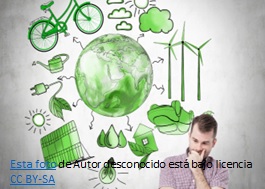Sustainability as a value: experience from a German entrepreneur starting up a company in Colombia
DOI:
https://doi.org/10.17981/econcuc.44.2.2023.Org.5Keywords:
Sustainability, Organizational value, Entrepreneurship, Top management theory, Sustainable businessAbstract
Sustainability has become an imperative value in business management, promoted as a necessary element in the context of global competitiveness and a strategy in new businesses development. In small and medium-sized enterprises, starting up a sustainable business is aligned to personal and cultural experiences of the entrepreneur, which permeate overall decision-making process. This article shows a case study of a bottled juice company started up in Colombia by young German entrepreneurs, seen from a theoretical perspective supported by the Upper echelon’s theory, as a way to analyses the influence of personal values in the implementation of sustainability as a business core. The case study is of a qualitative and exploratory nature and was carried out through a semi-structured interview with company Prost SAS founder. As a result, it was evidenced that the founders to the company transmit indeed the conceptions or personal values. However, there are external factors that can question the value of sustainability as something positive in the development of the business, or even can jeopardize the long-term viability of small businesses. In conclusion, sustainability is a value that corresponds to the vision or intention of the company leader, however, the company implementation processes can be affected by external factors.
Downloads
References
Al-Shammari, M., Rasheed, A. & Al-Shammari, H. (2019). CEO narcissism and corporate social responsibility: Does CEO narcissism affect CSR focus? Journal of Business Research, 104, 106–117. https://doi.org/10.1016/j.jbusres.2019.07.005
Bardi A. & Schwartz S. (2003). Values and Behavior: Strength and Structure of Relation. Personality and Social Psychology Bulletin, 29(10), 1207–1220. https://doi.org/10.1177/0146167203254602
Bocken, N., Short, S., Rana, P. & Evans, S. (2013). A value mapping tool for sustainable business modelling. Corporate governance, 13(5), 482–497. https://doi.org/10.1108/CG-06-2013-0078
Bourne, H. & Jenkins, M. (2013). Organizational Values: A Dynamic Perspective. Organization Studies, 34(4), 495–514. https://doi.org/10.1177/0170840612467155
Bozkurt, Ö., Xheneti, M. & Vicky. (2022). Oh the Front Line of the Circular Economy: The Entrepreneurial, Identity and Institutional Work of a Female Entrepreneur Towards the Circular Transition. Work, Employment and Society, 36(1), 156–166. https://doi.org/10.1177/0950017021104300
Castello, E. (2003). Los nuevos valores en las organizaciones empresariales. Boletín de Estudios Económicos, 58(180), 421–444. Disponible en https://bee.revistas.deusto.es/issue/archive
Chen, J., Liu, X., Song, W. & Zhou, S. (2020). General managerial skills and corporate social responsibility. Journal of Empirical Finance, 55, 43–59. https://doi.org/10.1016/j.jempfin.2019.10.007
Chetty, S. (1996). The case study method for research in small-and medium-sized firms. International Small Business Journal, 15(1), 73–85. https://doi.org/10.1177/0266242696151005
Connelly, B. L., Ketchen Jr., D. J. & Slater, S. F. (2011). Toward a “Theoretical toolbox” for sustainability research in marketing. Journal of the Academy of Marketing Science, 39, 86–100. https://doi.org/10.1007/s11747-010-0199-0
Díaz-Bravo, L., Torruco-García, U., Martínez-Hernández, M. & Varela-Ruiz, M. (2013). The interview, a flexible and dynamic resource. Medical Education Research Journal, 2(7), 162–167. Available: http://riem.facmed.unam.mx/index.php/riem/article/view/430
Donaldson, T. & Preston, L. (1995). The Stakeholder theory of the Corporation: Concepts, Evidence, and Implications. The Academy of Management Review, 20(1), 65–69. https://doi.org/10.2307/258887
Egri, C. & Herman, S. (2000). Leadership in the North American Environmental Sector: Values, Leadership Styles, and Contexts of Environmental Leaders and Their Organizations. The Academy of Management Journal, 43(4), 571–604. Available: https://www.jstor.org/stable/1556356
Esqueda, S., Csoban, E. & Prat, J. F. (2019). A profile of the popular entrepreneur: A value-based approach. Academia Revista Latinoamericana de Administración, 32(2), 267–281. https://doi.org/10.1108/ARLA-03-2018-0055
Farag, H. & Mallin, C. (2016). The influence of CEO demographic characteristics on corporate risk-taking: evidence from Chinese IPOs. The European Journal of Finance, 24(6), 1528–1551. https://doi.org/10.1080/1351847X.2016.1151454
Feather, N. T. (1973). The measurement of values: Effects of different assessment procedures. Australian Journal of Psychology, 25(3), 221–231. https://doi.org/10.1080/00049537308255849
Federal Republic of Germany. Federal Press Office. (1 August, 2022). Germany’s Sustainable Development Strategy. The Federal Government. Available: https://www.bundesregierung.de/breg-en/issues/sustainability/germany-s-sustainable-development-strategy-354566
Finkelstein, S. (1992). Power in Top Management Teams: Dimensions, Measurement, and Validation. The Academy of Management Journal, 35(3), 505–538. Available: https://www.jstor.org/stable/256485
Finkelstein, S. & Hambrick, D. (1996). Strategic Leadership: Top Executives and Their Effects on Organizations. St. Paul: West Publishing Company.
Gioia D. & Chittipedi, K. (1991). Sensemaking and sensegiving in strategic change initiation. Strategic Management Journal, 2 (6), 433–448. https://doi.org/10.1002/smj.4250120604
Gioia, D., Corley, K. & Hamilton, A. (2012). Seeking Qualitative Rigor in Inductive Research. Organizational Research Methods, 16(1), 15–31. https://doi.org/10.1177/1094428112452151
Halaby, C. (2003). Where Job Values Come From: Family and Schooling Background, Cognitive Ability, and Gender. American Sociological Review, 68(2), 251–278. https://doi.org/10.2307/1519768.
Halis, M., I. H. Ozsabuncuoglu & A. Ozsagir. (2007). The values of entrepreneurship and factors that effect entrepreneurship: Findings from Anatolia. Serbian Journal of Management, 2(1), 21–34. https://doi.org/10.32861/jssr.spi6.571.575
Hambrick, D. C. (2007). Upper Echelons Theory: An Update. Academy of Management Review, 32(2), 343–334. Available: https://www.jstor.org/stable/20159303
Hambrick, D. C. & Mason P. A (1984). Upper echelons: The organization as a reflection of its top managers. Academy of Management Review, 9(2), 193–206. https://doi.org/10.2307/258434
Hensellek, S., Kleine-Stegemann, L. & Kollman, T. (2023). Entrepreneurial leadership, strategic flexibility, and venture performance: Does founders’ span of control matters? Journal of Business Research, 157, 1–14. https://doi.org/10.1016/j.jbusres.2022.113544
Hillestad, T., Xie, C. & Haugland, S. A. (2013). Innovative corporate social responsibility: The founder’s role in creating a trustworthy corporate brand through “green innovation. Journal of Product and Brand Management, 19(6), 440–451. https://doi.org/10.1108/10610421011085758
Jessen, H., Jessen K. y Durlej, C. (2014). Plan de negocios de Prost S.A.S. Medellín: Prost S.A.S.
Joshi, A., Verma, P., Dutt, P. & Bindish, P. (2013). Introducing Corporate Social Responsibility (CSR) to a spiritual and ‘superstitious’ India. Parilkapana. KIIT Journal of Management, 9(III), 60–64. https://ssrn.com/abstract=2695305
Junquera, B. & Ordiz, M. (2002). Influence of managerial characteristics on the environmental performance of Spanish companies. Environmental Quality Management, 12(1), 35–51. https://doi.org/10.1002/tqem.10051
Karp, D. G. (1996). Values and their effect on pro-environmental behavior. Environment and Behavior, 28(1), 111–133. https://doi.org/10.1177/0013916596281006
Kassinis, G., Panayilotou, A., Dimou, A. & Katsifaraki, G. (2016). Gender and Environmental Sustainability: A Longitudinal Analysis. Corporate Social Responsibility and Environmental Management, 23(6), 399–412. https://doi.org/10.1002/csr.1386
Ketprapakorn, K. & Kantabutra, S. (2019). Culture Development for Sustainable SMEs: Toward a Behavioral Theory. Sustainability, 11(9), 1–15. https://doi.org/10.3390/su11092629
Krajcsák, Z. (2018). Relationships between employee commitment and organizational cultures: a theoretical framework. International Journal of Organizational Analysis, 26(3), 398-414. https://doi.org/10.1108/IJOA-05-2017-1174
Leppäaho, T., Plakoyiannaki, E. & Dimitratos, P. (2016). The case study in family business: An analysis of current research practices and recommendations. Family Business Review, 29(2), 159–173. https://doi.org/10.1177/0894486515614157
Lorenc, S. & Soronika, O. (2015). Sustainable Development of Mining Enterprises as a Strategic Direction of Growth of Value for Stakeholders. Mining Science, 22(2), 67–68. Available from https://www.dbc.wroc.pl/dlibra/publication/42671/edition/38643/content?&meta-lang=pl
Lüdeke-Freund, F. (october, 2010). Towards a Conceptual Framework of ‘Business Models for Sustainability’. Presented at Knowledge collaboration & learning for sustainable innovation, ERSCP-EMSU 2010, Delft, The Netherlands. https://dx.doi.org/10.13140/RG.2.1.2565.0324
Neely Jr., B. H., Lovelace, J. B., Cowen, A. P. & Hiller, N. J. (2020). Metacritiques of Upper Echelons Theory: Verdicts and Recommendations for Future Research. Journal of Human Values, 18(2), 133–146. https://doi.org/10.1177/0971685812454482
Osterwalder, A. & Pigneur, Y. (2010). Business Model Generation. Chichester: Wiley.
Paris, J. M. & Viltard, L. A. (2017). Innovation and Shared Value Creation (SVC). Breaking the logic of certain markets and thinking about the long term. Palermo Business Review, 15, 25–43. https://repositorio.uca.edu.ar/handle/123456789/9081
Pawar, B. S. & Eastman, K. K. (1997). The nature and implications of contextual influences on transformational leadership: A conceptual examination. Academy of Management Review, 22, 80–109. https://doi.org/10.2307/259225
República de Colombia. Presidencia de la República. (27 de septiembre de 2011). Por el cual se modifican los objetivos y la estructura del Ministerio de Ambiente y Desarrollo Sostenible y se integra el Sector Administrativo de Ambiente y Desarrollo Sostenible. [Decreto 3570]. Diario Oficial: 48205. Disponible en http://www.secretariasenado.gov.co/senado/basedoc/decreto_3570_2011.html
Rokeach, M. (1973). The Nature of Human Values. New York: Free Press.
Sarma, S., Attaran, S. & Attaran, M. (2022). Sustainable entrepreneurship: Factors influencing opportunity recognition and exploitation. The International Journal of Entrepreneurship and Innovation, 1–14. https://doi.org/10.1177/14657503221093007.
Schaltegger, S. & Wagner, M. (2006). Managing and measuring the business case for sustainability. Capturing the relationship between sustainability performance, business competitiveness and economic performance. In S. Schaltegger, M. Wagner (Ed.), Managing the business case for sustainability (pp. 1–27). Sheffield: Greenleaf. https://doi.org/10.4324/9781351280525-1
Schwartz, S. (1992). Universals in the Content and Structure of Values: Theoretical Advances and Empirical Tests in 20 Countries. In M. P. Zanna (Ed.), Advances in Experimental Social Psychology [Vol. 25, pp. 251–265]. Ontario: University of Waterloo. https://doi.org/10.1016/S0065-2601(08)60281-6
Schwartz, S. & Bilsky, W. (1987). Toward A Universal Psychological Structure of Human Values. Journal of Personality and Social Psychology, 53(3), 550–562. https://doi.org/10.1037/0022-3514.53.3.550
Šnircová, J., Fidlerová, H. & Božiková, L. (2016). Sustainable Global Competitiveness Model as a New Strategic Opportunity for the Companies in Slovakia. TEM Journal, 5(2), 241–247. https://dx.doi.org/10.18421/TEM52-19
Stubbs, W. & Cocklin, C. (2008). Conceptualizing a Sustainability Business Model. Organization & Environment, 21(2), 103–127. https://doi.org/10.1177/1086026608318042
Stake, R. E. (1999). Investigación con estudio de casos. Madrid: Morata.
Sung, J. & Woo, H. (2019). Investigating male consumers’ lifestyle of health and sustainability (LOHAS) and perception toward slow fashion. Journal of Retailing and Consumer Services, 49(5), 120–128. https://doi.org/ 10.1016/j.jretconser.2019.03.018
Vaske, J., Donnelly, M. Williams, D. y Jonker, S. (2001). Demographic Influences on Environmental Value Orientations and Normative Beliefs About National Forest Management. Society and Natural Resources, 14(1), 761–776. https://doi.org/10.1080/089419201753210585
Waldman D., Javidan M. & Varella P. (2004). Charismatic leadership at the strategic level: A new application of upper echelons theory. Leadership Quarterly, 15(3), 355–380. https://doi.org/10.1016/j.leaqua.2004.02.013
Yilmaz, A. K. & Flouris, T. (2010). Managing corporate sustainability: Risk management process-based perspective. African Journal of Business Management, 4(2), 162–171. Available: https://academicjournals.org/journal/AJBM/article-abstract/D666F9E21165

Published
How to Cite
Issue
Section
License
Copyright (c) 2023 Yamile Andrea Montenegro, Oscar Hernán Vargas Villamizar

This work is licensed under a Creative Commons Attribution-NonCommercial-NoDerivatives 4.0 International License.
You are free to:
- Share — copy and redistribute the material in any medium or format
- The licensor cannot revoke these freedoms as long as you follow the license terms.
Under the following terms:
- Attribution — You must give appropriate credit , provide a link to the license, and indicate if changes were made . You may do so in any reasonable manner, but not in any way that suggests the licensor endorses you or your use.
- NonCommercial — You may not use the material for commercial purposes .
- NoDerivatives — If you remix, transform, or build upon the material, you may not distribute the modified material.
- No additional restrictions — You may not apply legal terms or technological measures that legally restrict others from doing anything the license permits.

 English
English
 Español (España)
Español (España)














